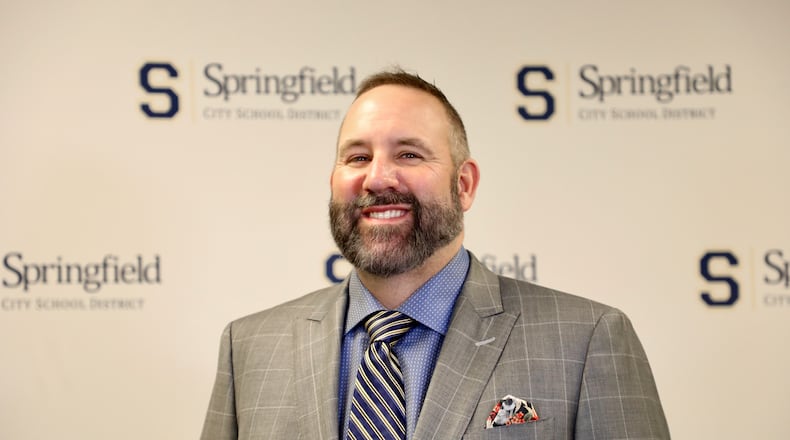It would cost $53 per every $100,000 of property value and generate $1,229,000, according to the district.
“The levy is designed as a contingency measure to protect the district’s financial stability considering an ongoing legal dispute with the Clark County auditor over the continuation of the 2013 bond levy,” according to Superintendent Bob Hill.
The district sued the county auditor last year in the Ohio Supreme Court after the auditor’s office decided it would not collect certain property taxes in the years 2026-31 the school believes it’s owed as a result of voters passing the 2013 bond levy.
Dispute over previous bond issue
Springfield put a $13,995,000 bond levy on the May 2013 ballot and voters passed it, with the tax to be paid over a maximum of 12 years, according to the lawsuit documents. However, the argument between the parties is about timing.
School officials issued $5.88 million in bonds in September 2013, but didn’t issue the remaining $8.11 million in bonds until six years later in November 2019. Taxpayers began paying the first part of the taxes in 2014, to cover the principal and interest on the first set of bonds.
There was language about the bonds being repaid over a maximum period not to exceed 12 years. The school district is arguing that means two separate 12-year repayment windows — they say the “final maturity” dates are Dec. 1, 2026 for the Series 2013 Bond, and Dec. 1, 2031 for the Series 2019 Bond.
County Auditor Hillary Hamilton said the ballot language for the May 2013 bond issue stated the principal would be repaid annually over a maximum period of 12 years, and that collection for the levy cannot exceed 12 years under the ballot language and the Ohio Revised Code.
Hill said the district “remains hopeful that the court will issue a favorable ruling soon,” which would allow the new levy to be removed from the ballot entirely.
If the court were to rule against the district, Hill said the levy would “provide a backup funding stream” for permanent improvements such as facility upkeep, equipment, buses and technology upgrades.
“Without it, the district would lose approximately $1.7 million annually in dedicated debt service revenue beginning in 2025, creating an immediate shortfall that would otherwise have to be covered by diverting funds away from classroom instruction and student services,” he said.
If the levy passes, the district will have uninterrupted repayment of its bond obligation without cutting into educational programming.
If the levy fails, and the district also loses in court, it would require the district to divert millions from its general operating budget to meet legal debt obligations.
“It is important to emphasize that this levy is not an expansion of spending, but rather a contingency plan. It represents a safeguard to ensure the district can meet its legally required obligations without sacrificing educational opportunities for students,” Hill said.
What the public thinks
The News-Sun reached out to community members through an online form about their preferences. Of the 28 respondents, 11 of them were in support, 13 would not support and the others were on the fence.
Peter Noonan said the schools are a critical strength of the community and underfunded by the state, so “we must support them.”
Suzy Evans, who has two children in the district, said, her kids matter and she wants to support them.
“Springfield City is really trying, and I want to do what I can to support them. We can’t change a situation if we all don’t work together as a community. We are all being taxed from every angle, but don’t hurt the kids,” she said.
Justin Evans, who also has two students in the district, has no concerns and would love to see the levy pass.
“Our communities’ next generation needs this more than anyone,” he said. “But I’m afraid that the community will vote it down due to the property tax increase and new jail on the voting levy.”
Mark Sturgeon wants to understand more about the levy and would support it if he agrees with what it stands for.
Bud Downing said he doesn’t support the levy because he is “strongly against another penny” to schools and “more money for schools is not a solution, nor will more money lead to a solution.”
Alberta Williams would not support the levy because she is an older woman, widow and living on social security. She said it’s a “very big burden” and may have to sell her house.
About the Author

